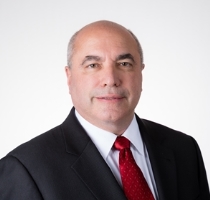FEATURED PAPER
By Bob Prieto
Jupiter, Florida, USA
David Pells, the editor of PM World Journal, has challenged its advisory board to think about the role and responsibilities that project and program managers have with respect to global climate change. This, to say the least, is a non-trivial challenge and likely an increasingly important one. In this paper I have reframed David’s challenge to reflect not just addressing climate change but actually reversing it and hopefully some fraction of the damage perhaps already done. This reframing probably reflects my engineering roots and post-disaster experience and belief that we must build back better.
In this paper I will attempt to:
- Outline some of the systems of systems challenges that we will likely face.
- Discuss the emergent nature of both the challenges as well as the potential resultant outcomes.
- Draw attention to some of the driving forces acting both on this system of systems as well as the national and sectoral programs that may emerge to respond to this challenge.
- Highlight some of the feedback loops which may exist or emerge from both apparent and hidden coupling.
- Discuss system of system risks, program risks and where our perceptions and appetite for such risks may change over time.
- Outline some particular challenges for program managers as they are engaged in addressing this challenge.
The work that results from this exercise is far from complete and not intended to represent an endpoint but rather one potential starting point. Much remains to be done by our profession and broader society in general.
Systems of systems challenges that we will likely face
Addressing global climate change represents a significant system of systems problem characterized by:
- Extreme levels of interdependence
- Feedback loops, both known and unknown, with uncertain behaviors and varying time constants
- Broadest possible geographical extent
- Emergent behaviors, compounded by the multiplicity of complex systems and actors.
- Continuous system and system of systems level transitions introduce new and unseen challenges (and opportunities)
- Decision making independence across geography; operational independence of deployed and evolving technologies.
- Disparate linkages and effects with existing social systems (socio-technical; socio-economic; socio-environmental)
- Unequal cost and benefit distribution
- Lack of singular clarity on desired outcome, timeframe, and metrics to measure progress and success.
To provide a framework for these challenges I have adopted an ESPRIT[1] framework previously utilized in evaluating international development and construction projects. Table 1 provides a less than complete summary of some on the challenges we will likely encounter in seeking to reverse global warming.
More…
To read entire paper, click here
How to cite this paper: Prieto, R. (2021). Reversing Global Warming, PM World Journal, Vol. X, Issue III, March. Available online at https://pmworldlibrary.net/wp-content/uploads/2021/03/pmwj103-Mar2021-Prieto-Reversing-Global-Warming.pdf
About the Author

Bob Prieto
Chairman & CEO
Strategic Program Management LLC
Jupiter, Florida, USA
![]()
Bob Prieto is a senior executive effective in shaping and executing business strategy and a recognized leader within the infrastructure, engineering and construction industries. Currently Bob heads his own management consulting practice, Strategic Program Management LLC. He previously served as a senior vice president of Fluor, one of the largest engineering and construction companies in the world. He focuses on the development and delivery of large, complex projects worldwide and consults with owners across all market sectors in the development of programmatic delivery strategies. He is author of nine books including “Strategic Program Management”, “The Giga Factor: Program Management in the Engineering and Construction Industry”, “Application of Life Cycle Analysis in the Capital Assets Industry”, “Capital Efficiency: Pull All the Levers” and, most recently, “Theory of Management of Large Complex Projects” published by the Construction Management Association of America (CMAA) as well as over 750 other papers and presentations.
Bob is an Independent Member of the Shareholder Committee of Mott MacDonald. He is a member of the ASCE Industry Leaders Council, National Academy of Construction, a Fellow of the Construction Management Association of America, Millennium Challenge Corporation Advisory Board and member of several university departmental and campus advisory boards. Bob served until 2006 as a U.S. presidential appointee to the Asia Pacific Economic Cooperation (APEC) Business Advisory Council (ABAC), working with U.S. and Asia-Pacific business leaders to shape the framework for trade and economic growth. He had previously served as both as Chairman of the Engineering and Construction Governors of the World Economic Forum and co-chair of the infrastructure task force formed after September 11th by the New York City Chamber of Commerce. Previously, he served as Chairman at Parsons Brinckerhoff (PB) and a non-executive director of Cardno (ASX)
Bob serves as an honorary global advisor for the PM World Journal and Library and can be contacted at rpstrategic@comcast.net.
To view other works by Bob Prieto, visit his author showcase in the PM World Library at https://pmworldlibrary.net/authors/bob-prieto/
[1] ESPRIT – Economic, Social, Political, Religious, Intellectual, Technology









